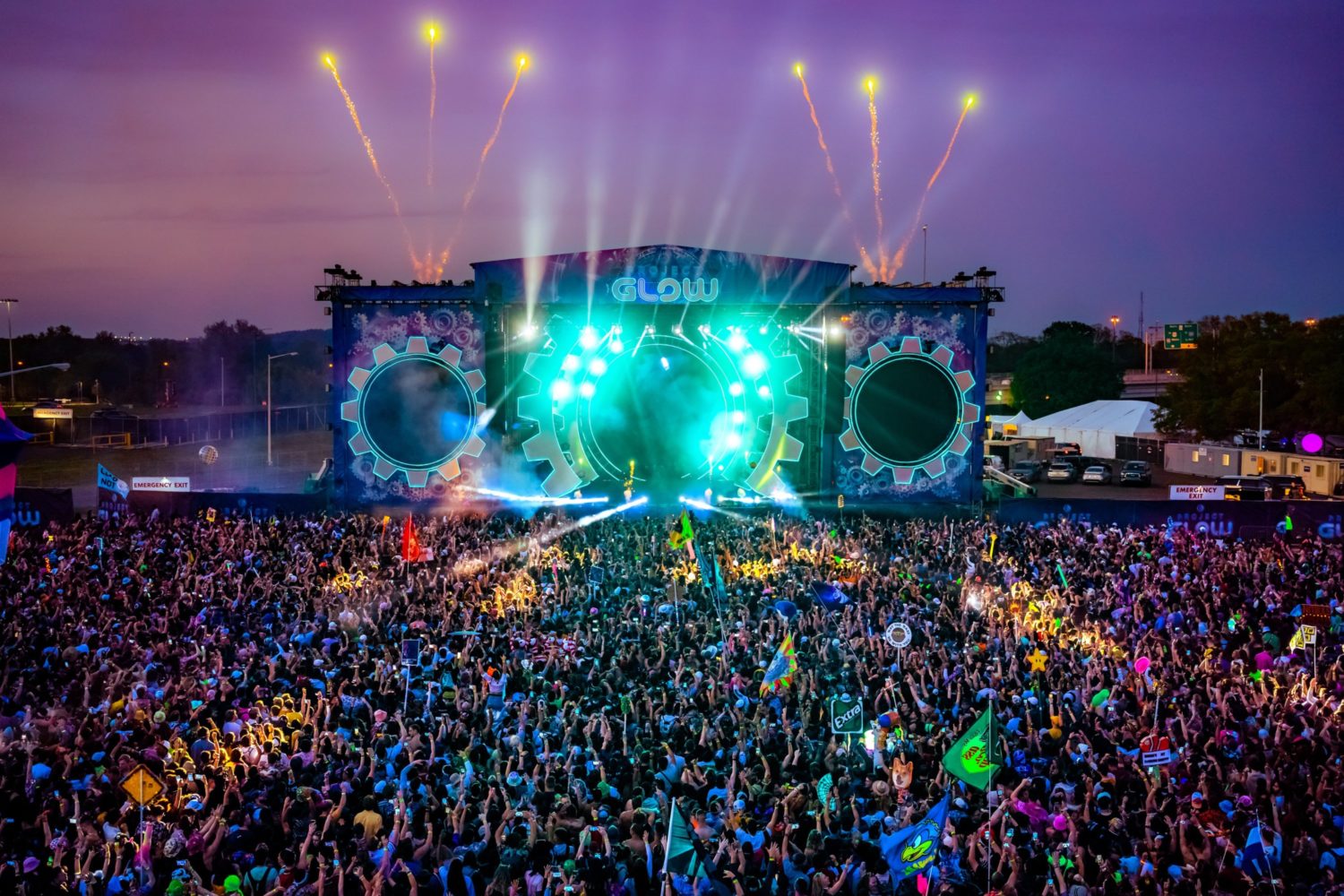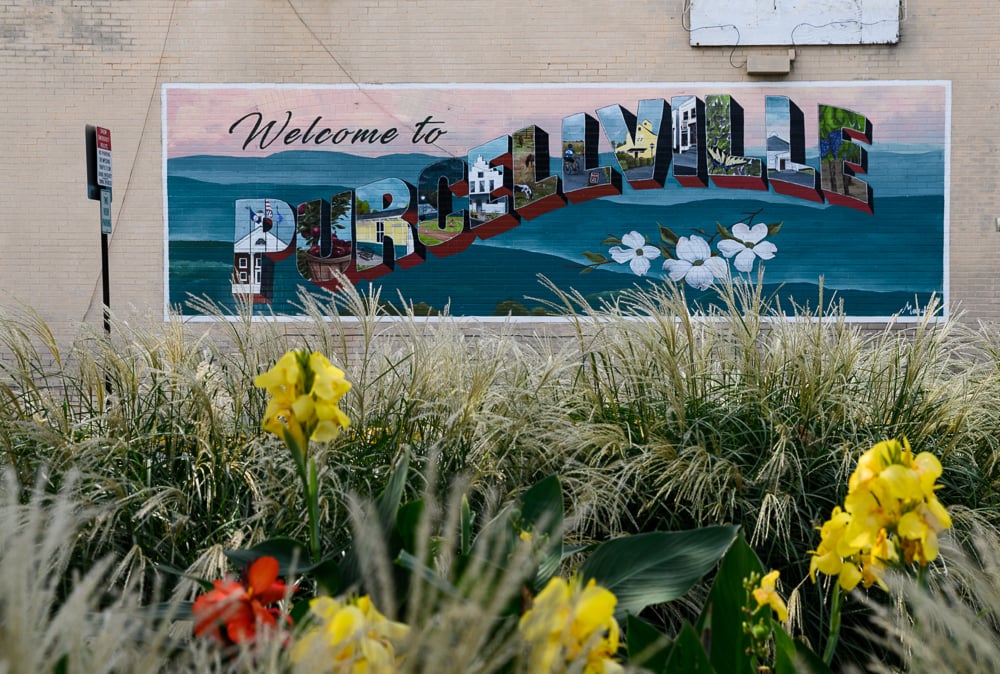
Washington, DC, native Rachel Grady and her filmmaking partner, Heidi Ewing (a Georgetown grad), have been making documentaries together since 2005, and managed to earn an Oscar nomination in 2006 for what was only their second film, the fascinating Jesus Camp. Their fifth feature is Detropia, which opens this weekend at West End Cinema.
Detropia documents the current state of life in Detroit, a city that’s been on a rapid downward slope due to the devastating loss of jobs in the automotive industry—jobs that helped define it as the booming Motor City for much of the 20th century. As the plants have shut down and the automakers have fled, so too have many residents, leaving hundreds of abandoned buildings to fall into disrepair and a population that’s less than half of what the city held at its peak.
Grady and Ewing, employing the observational, often visually poetic style that has become their trademark, capture this city at a crossroads, as longtime Detroiters struggle for survival, leaders attempt to re-engineer the city, and newcomers see the opportunity to start over in a place that’s also looking for a fresh start. The Washingtonian caught up with Grady to discuss how she initially hoped to make Washington her subject, how Detroit residents responded to the film, and the “exquisite decay” she and Ewing attempted to capture.
How did you and Heidi decide to make this film?
Heidi is from Detroit, and she’d been talking about it for years. I had gone a couple of times for work, and was totally shocked and curious and confused about what had happened to this city. I grew up in DC, I live in New York, and I have a kind of vision of what cities are supposed to be like—and it absolutely didn’t line up. So when she suggested we explore Detroit as a topic, I was totally intrigued. We went and filmed, and after that it just seemed like a no-brainer.
Is there anything about growing up in DC that has helped shaped the sort of projects you’re interested in?
One of the reasons I got into making documentaries was I thought that I really wanted to make a documentary about DC. When I was in my mid-twenties, I thought it would be a great topic. What was going on then was that it was this kind of impoverished, dysfunctional city that was at the doorstep of the Capitol. How could they let this happen, seeing it right in front of their noses? Shouldn’t the capital of America be sort of a shining example of success? But obviously DC has changed, incredibly, even in the past five or six years. I think I missed my moment.
Detropia has an observational style that relies on a lot of compelling visuals, without many direct interviews. How does that tie in to what you’re trying to accomplish with the film?
This is our fifth film; our style is observational in general, and we’ve never used narration. What was important to us was to let the citizens of Detroit speak for themselves, and to learn about the city through second-, third-, and fourth-generation Detroiters. The people we ended up casting I think don’t have a voice. There’s been a lot of films about Detroit that have come out, and I haven’t seen this population really get any airtime. We thought it was an opportunity to let them speak.
You definitely had a very charismatic set of characters. What was the process of finding them and settling on which ones you wanted in the film?
We talked to hundreds of people. We spent months meeting people and trying to figure out who we should follow. We ended up following a handful of them, and then during the editing process, these ended up being the people who represent our story. They ended up being picked probably because they were different enough from one another, they weren’t saying the exact same thing, and they all had their own facet of the story to reveal. And they’re fun to watch. You want it to be entertaining on some level; you want them be fun to listen to.
Did you find that Detroiters were particularly eager or reluctant to be on camera?
They erred more on the reluctant side. None of the people we ended up including were reluctant subjects. But in general, Detroiters are defensive. Detroit has become the butt of jokes, or an example of a failed city. They’re wary of outsiders, they’re wary of media, and I think some of that’s justifiable. But I think also they need to let their guard down a bit and let people in, because I think they have a lot to teach people.
Do you think some of that reluctance has to do with the “ruin porn” phenomenon, of people coming in and wanting to gawk and take pictures and then getting out?
It was something we noticed initially because of these photographers who came out and showed this exquisite decay that’s going on there. First of all, it’s hard to avoid that. It’s everywhere in Detroit. It would be dishonest to say that Detroiters don’t interact with that every day. So it’s the truth. But also what we noticed is that a lot of these pictures lacked people. They’re empty shots of structures. Detroit has emptied out, it’s lost more than half its population, but there are still hundreds of thousands of people who live there, so we wanted to depict these buildings and these visuals with humans in them. Often—for instance, with our video blogger—we do show the inside of these sort of feral buildings, but in the context of someone interacting with it. So it was really important for us to show that none of this is in a vacuum, that there are people living there.
I noticed that especially in the train station, which is an iconic symbol of the city’s decay, and which you shot with an opera singer wandering around inside and singing. I liked how that tied back to many of the earlier scenes within the actual Detroit Opera, whether as a metaphor for beauty spurring rebirth in a desolate place, or as a potential sad end for other grand structures, like the opera house.
Well, when we filmed it, we didn’t necessarily mean for it to; you don’t know how you’re going to put it together, since with a documentary there’s no script. But when we did put it together, it did kind of make sense as the last scene. And the opera served a few purposes: to show that there is still a vibrant artistic, classical artistic life there, but also that all the people that support it are very wealthy, and there’s still money there. And I think it’s just surprising to think of opera in Detroit.
One of the other fascinating scenes for me was when the owner of a bar near one of the idle plants goes to the car show, and his main reason for being there is to find out when there’s going to be a viable American-made electric vehicle. He figures if that happens, then the plant near his business will go back into production and his own business will be able to bounce back as well. How much did you find that to be a common undercurrent in Detroit, this sense that if the car industry comes back, it can save everyone?
Extremely. And I would say that’s a problem: that they’re still so tied to this one industry. Relying on any one industry in any city is dangerous. I think that’s a lesson a lot of cities are learning and that America needs to learn in general. Those days of relying on a big company to take care of you are gone. It’s a system that has moved on. And Detroit still suffers from that thinking, incredibly. There’s this feeling that they are one huge hit car away from a comeback.
What are the hopes that you have for the film in terms of what it can do for the city?
A lot of things. This is one little movie, so we can’t think we’re going to change the country. But I think that in Detroit, we can definitely try and bring some communities together that are not speaking at all. The old Detroit and the newcomers have no interaction whatsoever—and I think the city has a real shot if they work together. I think other cities should recognize that they have things in common with Detroit, and that it’s not, “Thank God we’re not them.” You’re pretty close. There are other cities that are going bankrupt across the nation, and there are municipalities that are collapsing, and it’s not over yet. There should be some outrage that the working poor are now sort of the norm. It’s not acceptable; it’s not what everyone signed up for.
After spending all that time there and making the film, what feelings do you have in terms of the future of Detroit?
It’s got a lot of systemic problems that have been around for 60 years. I do think it’s going to come back as something, but I don’t think it’s ever going to come back as what it was. The world has changed, and America is a little bit behind the ball on it. I think we will adapt, because this is a country of survivors and hustlers. But it’s going to be a long, hard road. But I am optimistic, because the people I met there who have decided to stay are really what you would hope for—they believe in the city, they’re steadfast, they’re not going anywhere, they’ve got heart, and they have an insane optimism that I can’t even believe, that I never could even imagine embracing. I think that spirit is what will carry the day.
Detropia opens at West End Cinema this Friday, September 14. Rachel Grady will appear at the cinema for Q&As after the 5 and 7 PM shows on Friday and Saturday. For more information, visit West End Cinema’s website or detropiathefilm.com.

















